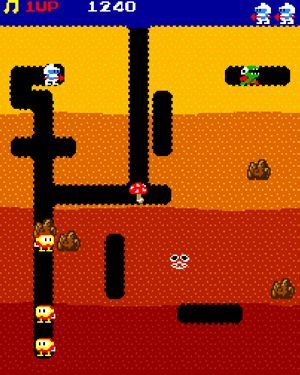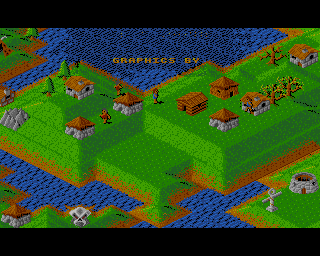Mento's Alternative to E3 2012: Day 1
By Mento 5 Comments
A common complaint levelled against video games is that they don't teach you anything and is time wasted that you could've spent bettering yourself with high culture and fancy book-learnin'. Let me tell you, none of that counts for squat after you die and you're enlisted in the mighty ethereal armies of Odin to prepare for Ragnarok. But that's not the point I want to make today (because that would be dumb) - I believe there are actually plenty of things you can learn from video games. For instance, yesterday I learned that you can't judge a book by its AR capabilities nor should you promote a game featuring a famous actress' voice work by not having them speak. Enlightening stuff, and totally irrelevant to E3 in any way.
Elucidated on below are a few examples pertaining to specific academic disciplines for all you high schoolers to ponder pursuing if all you've done during your lead up to finals is to play video games. Truly you are our future.
Geology

If MineCraft does anything right, besides doubling the GDP of Sweden, it's that it creates a reasonable facsimile of a geologically-rich landscape for eager blocky spelunkers to spelunk. While the types and variation of minerals it offers pales considerably to what's actually sitting below our feet right now (I can tell you with some authority that there's at least carbon, iron, phospherus, calcium, potassium, sodium, magnesium and sulphur buried in my back yard, since those are all elements that are found naturally in the human body) it does give you some idea about how the Earth's crust is layered. Bright-eyed Geology students can learn to identify these layers as soil, sandstone and other silicates, bedrock, dungeons, zombies and, finally, magma. And Hell, which is unanimously acknowledged by the scientific community to be synonymous with magma.
Likewise there are a lot of games that teach you about the value of minerals. Especially anything with a mining mini-game like the Mass Effects, Star Control 2 and innumerable other serious space sims that allow you to strip planets of their resources to sell to greedy Earthicans and other enterprising alien businessmen with suspiciously middle-eastern accents. Dead Space, conversely, tells us that sometimes mining a planet isn't such a hot idea? Point is, speculative fiction like this might point the way towards where geologists will be most valuable in a few decades' time. And while I don't doubt those incredibly dry educational videos about the Earth's composition and all the wonderful uses for zinc will be instrumental in shaping young minds for the geological challenges to come, I want to believe these resource-heavy digging games will do their part as well.
Economics

Now I don't know much about the vaguely scientific discipline of accurately predicting market trends and where all the big movers and shakers are going to move and/or shake. It all sounds a little too much like cutting open a chicken and reading its entrails for my liking. But I bet if there's anything worth learning about Economics before you jump right into an inscrutable Master's degree in the field, you can learn it from playing EVE Online.
EVE's rather notorious for being a space-sim MMO second and a massive quagmire of a space-faring economy first and foremost. Like the Bomb Crew, I'd rather be raked over hot coals before I actually create a profile and jump into the maddening abyss of space economics, but I hang onto every news report of a major upheaval and weird financial coup that seem oddly commonplace in that universe. I bet if you're looking for case studies in fictional space economies for your wildly impracticable dissertation, you'd have a field day just monitoring EVE Online's stock market for a few months. You'd be the next Space Michael Pachter in no time.
Anthropology & Sociology

People are an important part of our lives. If I ever left the house, I'm sure I'd bump into a few of them. As such, the study of people and their cultures and customs is of paramount importance among the social sciences. How are we expected to understand anything about our universe if we have yet to understand ourselves? Deep, right? But this is a blog on a video game website, so let's see if we can't shoehorn some of those in somewhere.
The first port of call is the Sims, the first game in the mighty Sim empire that dealt with people directly. There's not a lot to learn about the origins of the Simlish, since it's a rather demystifying character creation screen, but watching them move around and interact with one another is probably a beneficial exemplar for anyone on a sociology degree. That is, if you're lacking actual people to watch. But that's creepy. You're supposed to be studying people, but not in a creepy way. Best to avoid anything potentially voyeurish by sticking to a bunch of simulated humans who speak in gobbledegook and have no sense of self-preservation or dignity.
God Sim games are also rich veins of anthropological information, provided you don't get a complex of some kind and start seeing people as tiny ants who only live to serve your every whim. And if you wanted an accurate representation of Homo Sapiens at the dawn of its sentience and of our earliest cultural breakthroughs, might I suggest Chuck Rock, Bonk or Joe & Mac: Caveman Ninja?
